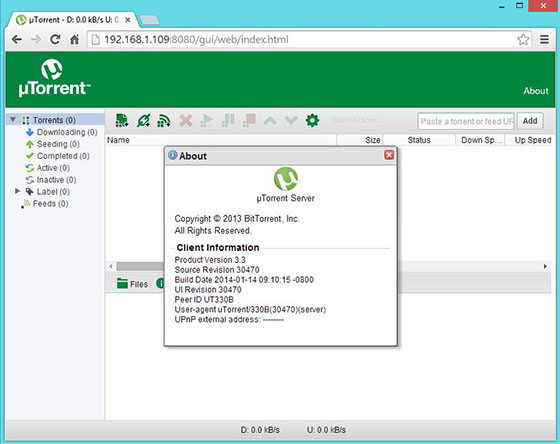
In this tutorial, we will show you how to install uTorrent on Debian 10. For those of you who didn’t know, uTorrent, also known as µTorrent, is a lightweight and powerful BitTorrent client that allows users to download and share files through the BitTorrent protocol. It offers a user-friendly interface, advanced features, and customization options, making it a popular choice among torrent enthusiasts. While uTorrent is primarily associated with Windows, it also has a Linux version that is compatible with various distributions, including Debian 10.
It’s important to note that the Linux version of uTorrent is a command-line-based application, unlike its Windows counterpart, which has a graphical user interface (GUI). However, the Linux version still offers the core functionality and features that make uTorrent a reliable and efficient torrent client.
This article assumes you have at least basic knowledge of Linux, know how to use the shell, and most importantly, you host your site on your own VPS. The installation is quite simple and assumes you are running in the root account, if not you may need to add ‘sudo‘ to the commands to get root privileges. I will show you the step-by-step installation of the uTorrent BitTorrent client on a Debian 10 (Buster).
Prerequisites
- A server running one of the following operating systems: Debian 10.
- It’s recommended that you use a fresh OS install to prevent any potential issues.
- SSH access to the server (or just open Terminal if you’re on a desktop).
- A
non-root sudo useror access to theroot user. We recommend acting as anon-root sudo user, however, as you can harm your system if you’re not careful when acting as the root.
Install uTorrent on Debian 10 Buster
Step 1. To begin the installation process, it’s essential to update your Debian 10 system’s package list. Open a terminal and run the following command:
sudo apt update
Step 2. Installing All Required Dependency Packages.
Before installing uTorrent, you need to install some necessary libraries and dependencies. Run the following command to install the required packages:
sudo apt install libssl1.0.0 libssl-dev
Step 3. Installing uTorrent on Debian 10.
Now we run the following command to download uTorrent from the official page:
wget https://download-hr.utorrent.com/track/beta/endpoint/utserver/os/linux-x64-debian-7-0
Then, run the following command to extract the tar.gz file to /opt/ directory:
sudo tar xvf utserver.tar.gz -C /opt/
Next, create a symbolic link:
sudo ln -s /opt/utorrent-server-alpha-v3_3/utserver /usr/bin/utserver
Step 4. Configure Firewall.
To ensure that uTorrent can communicate properly and accept incoming connections, you need to configure your Debian 10 firewall to allow traffic on the default uTorrent ports. Run the following commands to open ports 8080 and 6881 in the firewall:
sudo ufw allow 8080/tcp sudo ufw allow 6881/tcp
Step 5. Accessing uTorrent on Debian Linux.
Once successfully installed, now we navigate to http://your-ip-address:8080/gui/ your browser. When asked for a username and password, enter admin the username field and leave the password field empty.

Congratulations! You have successfully installed uTorrent. Thanks for using this tutorial for installing the latest version of the uTorrent BitTorrent client on the Debian system. For additional help or useful information, we recommend you check the official uTorrent website.